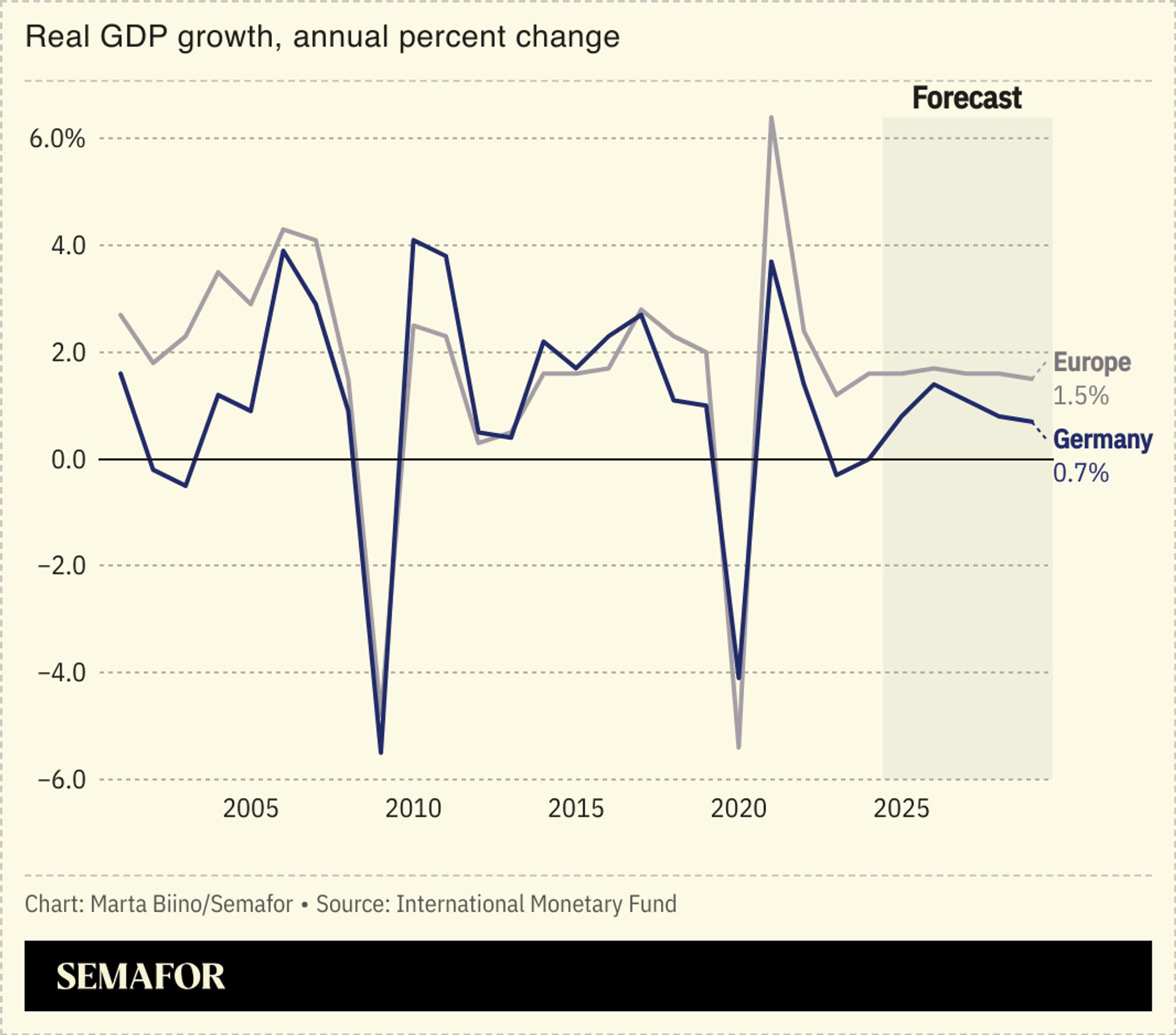The News
Germany reported weaker-than-expected economic expansion Friday, downgrading its GDP growth to just 0.1% for the third quarter, underscoring the latest challenge facing a country whose coalition government has collapsed.
Europe’s biggest economy barely avoided recession this year, battered by declining industrial production, the lingering effects of the COVID-19 pandemic, and Russia’s invasion of Ukraine.
Its famed manufacturing sector faces challenges from Chinese rivals: “Germany’s old macro business model of cheap energy and easily accessible large export markets is no longer working,” an ING economist wrote.
But with elections not expected to be held until February, analysts are skeptical of any short-term policy changes to address the country’s malaise. Germany’s unpopular chancellor staved off an internal party bid to unseat him, but is polling in the mid-teens.

SIGNALS
Trouble at Volkswagen speaks to larger economic turmoil
Trouble at Volkswagen, Germany’s biggest industrial employer, epitomizes the economic difficulties facing the country. Workers announced on Thursday that they planned to strike, following news that the automaker would be shuttering some domestic plants for the first in its 87-year history — and cutting wages by 10%. While China used to be Volkswagen’s biggest customer, its own car brands — in particular EVs — are now flooding international markets. Though the EU moved last month to “de-risk” from China by raising tariffs on Chinese EVs to 45%, Germany voted against the measure, fearing retaliation from Beijing. “Berlin’s mindset over China… won’t change until there is a fundamental strategic shift in the German economic model: de-industrialization is the future,” an expert at Carnegie Europe wrote.
Economic woes contributed to Scholz coalition collapse
Germany’s economic woes have contributed to intense dissatisfaction with its current leadership, the most unpopular in the country’s history. Earlier this month, the coalition government collapsed, sparked by disputes over constitutional debt restrictions. Germans have been “spoiled by [past] success,” Deutsche Welle wrote, leading to a reluctance to deviate from the status quo economically. Despite Scholz’s declaration of a “Zeitenwende” (“turning point”) in 2022, which indicated a major boost to military spending spurred by Russia’s invasion of Ukraine, Germany’s policy changes have always been “two steps forward, two steps back,” one expert said. If the minority government can enact planned reforms before the election, it may renew voters’ confidence, think tank Chatham House argued, if not, it could embolden the far-right AfD party, adding to political uncertainty.

